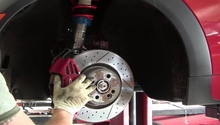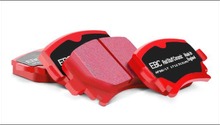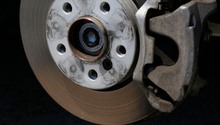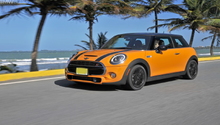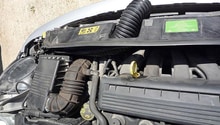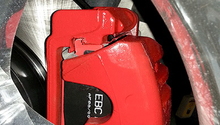Mini Cooper 2001-2006: Brake Modifications
When you're going fast, you have to be able to stop just as quickly. Go over a few brake modifications here to make sure your Mini Cooper can stop on a dime.
This article applies to the Mini Cooper (2001-present).
Auto enthusiasts are a special kind of people that are willing to put major money down to get going faster. What doesn't get quite as much attention as speed, though, is how quickly a car can slow down and stop. To some people the idea of upgrading their brakes seems a bit counter-productive to going faster, but anyone who's ever been to a track day can tell you that how well your brakes perform is every bit as important as how much horsepower your car has. In this article we'll go over some of the major modifications available for your brakes to get you stopping power that makes a difference.

Brake Modifications
Brake Pads
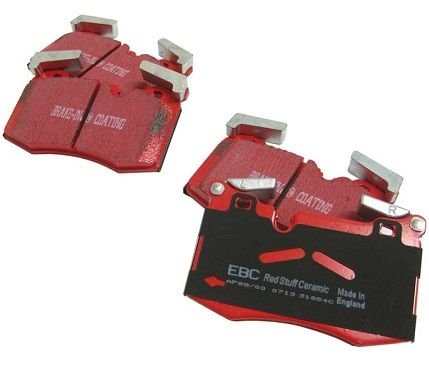
DIY Cost – $100
Professional Cost – $180
Skill Level – Easy; Installing ceramic brake pads is one of the easiest brake upgrades possible for any car, and can be done as part of standard brake maintenance.
Outfitting brake pads is one of the first steps in creating additional stopping power. Ceramic brake pads do a more effective job at stopping the car, and can make a noticeable difference, even if used alone.
Brake Fluid

DIY Cost – $20
Professional Cost – $30-$60
Skill Level – Easy; Doing a brake fluid change is considered a part of car maintenance, and this kind of upgrade is as simple as using the right fluid.
Having brake fluid with a higher boiling point will make your brakes more resistant to fade, and this is important for any car that will be facing frequent braking at speed. Not only can this be of tremendous help on the track, but if you are frequently on mountain roads, it is an investment well worth considering.
Stainless Steel Brake Lines

DIY Cost – $65
Professional Cost – $120+
Skill Level – Moderate; This upgrade isn't quite as difficult as replacing the entire brake system, but some experience with working on cars is highly recommended for replacing the lines.
Stainless steel lines offer less expansion under pressure which translates to a stiffer brake pedal response. In addition, the tougher steel lines are more resistant to damage from road debris, which can be helpful if you find yourself on gravel or dirt roads with any frequency.
OEM Brake Upgrade

DIY Cost – $1,200+
Professional Cost – $1,600+
Skill Level – Difficult; Installing an entirely new set of brakes is an involved process that will take some time. You will want to have experience working on cars.
Just one step below aftermarket full brake upgrades is the "OEM" upgrade. This could mean changing your brakes out for a set from a newer model car, or a higher trim level (such as the pictured John Cooper Works). This will give you much better stopping power, but won't match up to the aftermarket kits in the long run.
Aftermarket Brake Upgrade

DIY Cost – $2,000+
Professional Cost – $2,900+
Skill Level – Difficult; Installing an entirely new set of brakes, especially aftermarket big brake kits, is an involved process that will take some time. You will want to have experience working on cars.
Aftermarket big brake kits are as good as it gets when it comes to generating stopping power. These kits come with larger and thicker rotors and much larger, multi-piston calipers. The larger rotors will be better able to dissipate heat. The larger calipers utilize those multiple pistons to have more even brake torque applied to the brake pads, which will improve heat tolerance and braking efficiency. These kits are designed with the track in mind, and are perfectly suited to that environment. While kits like this are excessive on most daily commuters, a track car can make very good use of these kits.
Related Discussions
- R56 Brake Upgrade- NorthAmericanMotoring.com
- What is the Best Brake Fluid?- NorthAmericanMotoring.com
- Big Brake Kit - NorthAmericanMotoring.com
- 135i Brembos/GP2 Calipers - NorthAmericanMotoring.com
- Hawk Pads and Stainless Lines - NorthAmericanMotoring.com

